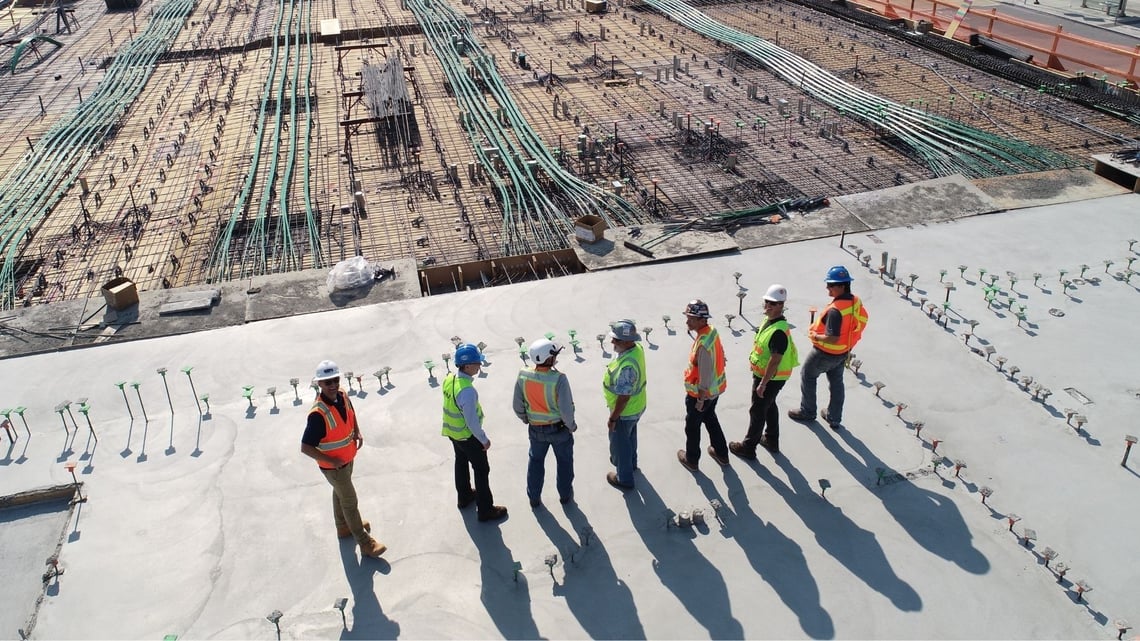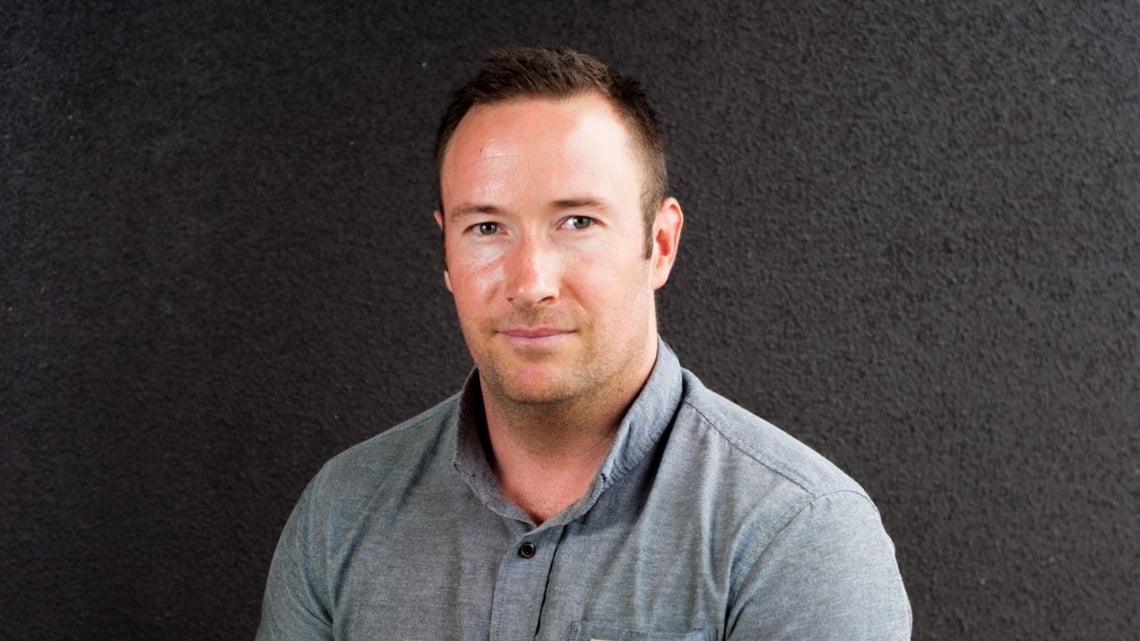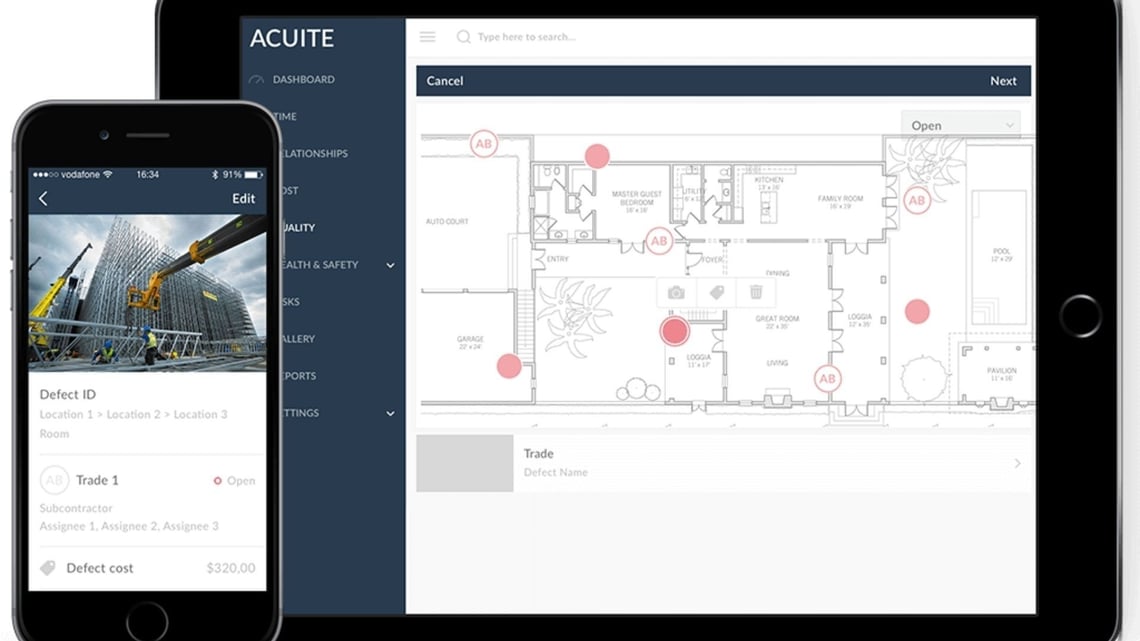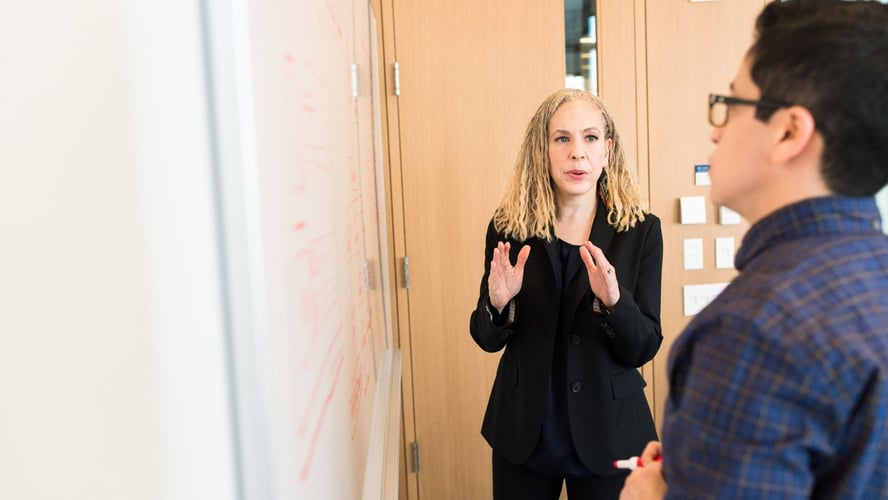Kiwi Business Story: David Speight from Acuite Construction Intelligence

David Speight is the co-founder of Acuite Construction Intelligence. The Auckland and Melbourne-based business has created an intelligent technology platform which integrates with existing systems to automate reporting and create real time visibility to more efficiently manage large construction projects.
Location: Auckland and Melbourne
Business Type: Technology and Construction
Founded: 2014
Number of Employees: 6
Current Business Situation: Managing accelerated business growth while managing COVID-19 expectations
Relationship with The Icehouse: Coaching, Advisory and Investment Facilitation
The Icehouse Business Coach: Nick Egerton
‘We use Acuite at every level of our business, from the guys at the coal face to the board room table. We are constantly reviewing the data being captured to see where we can be doing better. The value of the data is immeasurable. There is nothing else on the market that compares.’ Tamati Parker, Director C3 Construction
Tell us about yourself and why you decided to become an entrepreneur?
Things are often out of your control when you work for someone else – especially in a larger company. You have all those frustrations that you're not moving as quickly as you want to and removing that ceiling slowly becomes more and more of a priority as time goes on.
Antonia, my ex-wife and I started the business in 2014 just as we saw technology beginning to really impact the industry (Antonia’s still involved in the business in a big way, based in Tel Aviv now, which is fantastic). We saw an opportunity to leverage that, to bring all of that information together to give people real-time insight and an understanding of what was happening across their project, which was something that wasn’t available.
Why did you choose your type of business?
I was a builder at one point, knocking up houses in the Coromandel Peninsular, and the last thing I thought I’d be doing was starting up a software company. But I’d always had a desire to work on the bigger, more commercial projects in project management roles, so I completed my Bachelor of Construction at Unitec Institute of Technology in Auckland in 2013.
Being in Auckland provided a gateway to those larger-scale jobs, and the idea for the business came about as a result of my involvement in managing large-scale commercial projects. We had this idea to integrate technology into the industry, which was a big step.
How were things going before COVID-19?
We had just secured some really exciting customers in Australia, and things were really looking up. Then COVID came around and, of course, no one knew what to expect and what sort of impact it was going to have. So we prepared for the worst.
How have you and your business been impacted by COVID-19?
We were expecting to lose a lot of our NZ based customers almost immediately as they literally had zero cash flow as a result of the lockdown. With a large proportion of our business still in NZ I was constantly asking myself if the whole thing was going to self-destruct. So we sat down and worked out what could we do to deal with the potential lack of revenue and project cancellations. It was pretty brutal just waiting for the phone calls.
Luckily, however, they never came and I’m extremely grateful to all of our customers that they continued to support us. We felt it was important we kept providing value and even though the sites were closed, we stayed busy and invested huge amounts of time offering free training and upskilling of our customer base – to keep us and the technology at the forefront of the business.
We also ran various webinars which were received well. As a result we had no churn during that period, which was just remarkable. We also received an enquiry during that period from a multinational $10 billion company, who we’re onboarding now. Just goes to show – always expect the unexpected!
What are currently your biggest challenges?
Transitioning an idea into reality is difficult, and can be a slow and costly process – especially with enterprise software. There is a lot of stress involved when you’re pouring money into something and it’s not moving as fast as you initially (and naively) expect. In addition to our investors, we mortgaged the house and put in $250,000 ourselves.
However, it’s been an under-served industry, technology-wise, for so long and this represents a big opportunity that keeps you going. There's been several factors contributing to that, probably the biggest one is redressing the immense inadequacy of past technology that is fit-for-purpose for the processes of construction.
Despite advancements, and a concentration on making things simpler and more effective, the whole industry is still playing catch-up, and we feel we’re ahead of the game fulfilling a need and solving a problem which is made even more exciting as we continue to gain momentum and make a name for ourselves in the industry.
What kind of support have you received from The Icehouse and are you looking to keep working with them?
We did our own research and discovered The Icehouse in mid-2014 – pretty soon after founding the business. When you’re trying to establish yourself and spending large amounts of money, you want to work with somebody who can give you the confidence that you're heading in the right direction.
We pitched to The Icehouse through the Market Validation programme, were accepted and, from there, it was just magic working with the team. Nick Egerton helped us put all the pieces together – with his software experience he armed us with everything we needed to raise the first seed round.
Melissa Fletcher helped us with our marketing and articulate our value proposition, and Andy Hamilton and Janine Manning were also full of great ideas and advice – creating the opportunities to pitch and present at various events and then to get the product fit for market.
You need to make sure you are getting advice from people who have been there and done that. We received $500,000 of seed investment from the Ice Angels and the ArcAngels and wouldn’t be where we are today without them.
How have things changed since working with The Icehouse?
The product has now matured to a point where we can get larger contractors on board. It works, and provides value for them. We can now scale it to a point where we are achieving what we set out to, which is easier said than done.
Our primary focus is on expansion in Australasia, but we have projects running through Asia and I am getting leads from Africa, so you can’t help but get excited.
We wanted to make sure we were following some type of framework and doing things in the correct order as much as possible to increase our level of success. The Icehouse helped us get there and things would probably look very different if we hadn’t found them.
What advice would you give to other entrepreneurs who are struggling/looking for help?
You have to learn to switch off. You can't (and don’t want to) in the first few years of a business because I guess it’s new and you’re running on adrenaline, but over time it will take its toll. Like many, we were also working on Acuite for quite a while, while holding down full-time jobs, so it was a hard slog to get the product to market.
You can be so embedded in the business that it becomes impossible to reset. Everything is a major problem and weighs on your mind, so it’s critical to step out and look at things more holistically. In those early days, all businesses are quite fragile, but The Icehouse really helped us get through that initial phase and onto the start line.
In hindsight we also had unrealistic expectations of the time and expense that this would take. It’s only natural to concentrate on all of the ‘overnight success’ stories around without really knowing what went into making them happen, which more often than not is the same as what you’re going through. So recognition, acceptance and preparation that the journey may take longer than expected will also help keep you sane.

Follow this link for more information about Acuite Construction Intelligence and its intuitive software platform for the construction industry.


